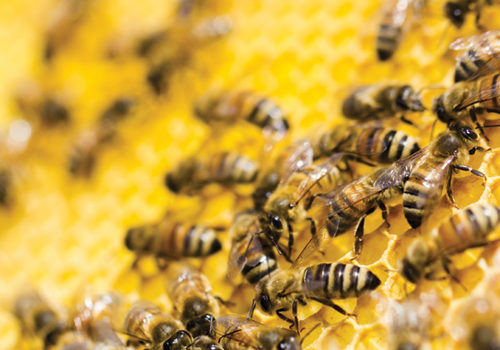Harvard, MA—Neonicotinoids, a class of insecticide, are harmful to honey bee colonies during winter months, according to researchers from the Harvard School of Public Health. This study strengthens previous findings associating insecticide use with Colony Collapse Disorder (CCD), a term used to describe the recent widespread disappearance of honey bee colonies.
Low doses of imidacloprid and clothianidin, two common types of neonicotinoids, were used to treat a small number of bee colonies in central Massachusetts from October 2012 through April 2013. A control group of untreated colonies was also used. A normal, steady decline in colony size took place at the onset of winter. But beginning in January, while bee populations in the untreated colonies began to increase again, neonicotinoid-treated hives continued to decline. By April, half of the colonies exposed to insecticide were abandoned in a manner typical of CCD. Only one control colony was lost, but this appeared to be due to the common intestinal parasite Nosema ceranae.
Colder winters may worsen the effects of insecticides, the researchers concluded. A previous study by the same research group found a higher mortality rate in colonies treated with insecticide than the current study. That study was conducted during the winter of 2010–2011, which was colder and more prolonged than the winter of the current study.
The doses of insecticide used in these studies are sub-lethal, meaning that they don’t kill the bees directly. This level of exposure mimics what occurs when insecticides are used in agriculture and bees collect pollen or nectar from treated plants.
Published in WholeFoods Magazine, July 2014










